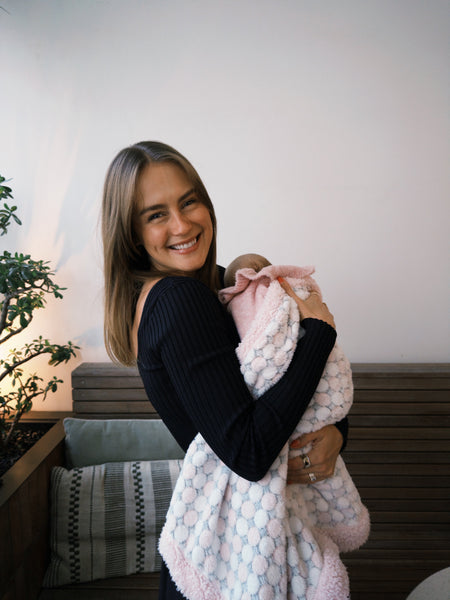Is it safe for babies to sleep on their stomach?
Until the age of 12 months, you should always put your baby to sleep on their back. It is considered unsafe for babies (especially newborn – 5 months) to sleep on their stomach, because it considerably increases the risk of SIDS.
At what age can a baby sleep on their tummy?
Can babies sleep on their tummy? Yes, they can, although it’s not recommended until the child reaches 1 year of age. If a baby rolls on to their tummy before this age, there are some cases where risk is decreased, and this is after 5-6 months of age. There are some circumstances when a child can go to sleep on their tummy, as they will likely have developed enough physical strength to change positions if required and move themselves away from any obstructions. Consult with your GP or pediatrician if your baby keeps rolling on themselves onto their stomach to help you find a safe solution and the most comfortable night’s sleep for all.
What is the safest position for a baby to sleep?
The safest way for a baby to sleep is on their back. It not only lowers the risk of SIDS but back sleepers are often at reduced risk of ear infections, stuffy noses and fever.
What are the risks of allowing a baby to sleep on their tummy?
Numerous studies and extensive research into SIDS have concluded that the risks of SIDS significantly increases if you put a newborn to sleep on their stomach. Other risks include:
- Baby breathing in their own exhaled breath can increase the risk of overheating
- Tummy sleepers may have a sudden decrease in blood pressure and/or heart rate control
SIDS and SUID
SIDS (Sudden Infant Death Syndrome) is the term used to describe the unexpected or unexplained death of a healthy infant between newborn and 1 year of age, usually during sleep. Most SIDS related incidents occur before the age of 6 months.
Doctors and pediatric specialists don’t know the exact cause of SIDS but extensive research suggests the following increases the risk of SIDS occurring:
- Overheating
- Babies sleeping on tummy
- Baby sleeping with blankets or pillows in a cot
- Baby sleeping in the same bed as parents, other people or pets
- Exposure to cigarette smoke
- Sleeping on unsuitable surfaces such as cushions or sofas
What to do if your baby rolls on their stomach while sleeping
According to Red Nose Australia, “once a baby has been observed to repeatedly roll from back to front and front to back again on their own for several weeks, they can be left to find their preferred sleep position (this is usually around 5-6 months).”
If your baby has reached this milestone, they should still be placed to sleep on their back until 1 year of age. If they continue to roll themselves over, it is likely that they have developed the required strength to sleep safely in this position, providing that all other safe sleep guidelines are adhered to, such as no obstructions in the cot.
At this time and when a baby begins to roll, they should no longer be swaddled or wrapped for sleep. Instead they should move to a transition suit or sleeping bag.
Can babies sleep on their stomach on your chest?
If you are awake and alert and there is no chance of you falling asleep while baby sleeps,, babies can sleep on their stomach, on your chest. There is in fact a benefit to be had from close contact. However, if there is any chance your baby will become unsupervised while they are sleeping on your chest (if you fall asleep for example), there are serious risks associated, including increasing the risk of SIDS.
What to do if your newborn won’t fall asleep unless on their tummy
If your newborn baby struggles to fall asleep on their back, you could consider swaddling them to give your little one a sense of security and to help prevent their startle reflex from waking them up during sleep. Swaddling could help provide your baby with the secure feeling they are seeking on their tummy, without posing the same risk.
What are the benefits of 1-year-old babies sleeping on their tummy?
If your baby has shown consistently that they like to sleep on their tummy and they are over the age of 1, the benefits of baby sleeping on tummy are:
- Baby may be more comfortable
- Potentially longer periods of sleep






